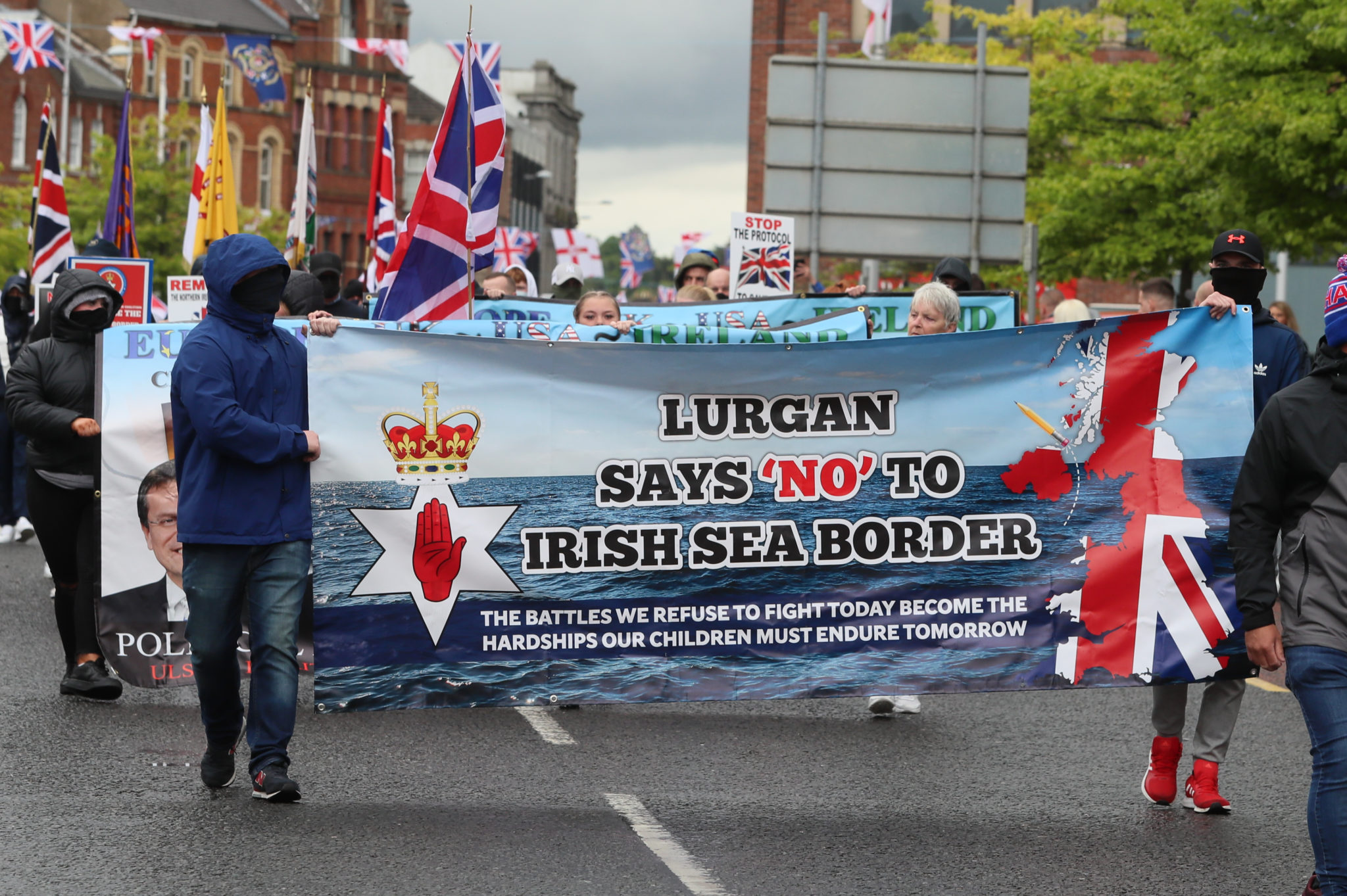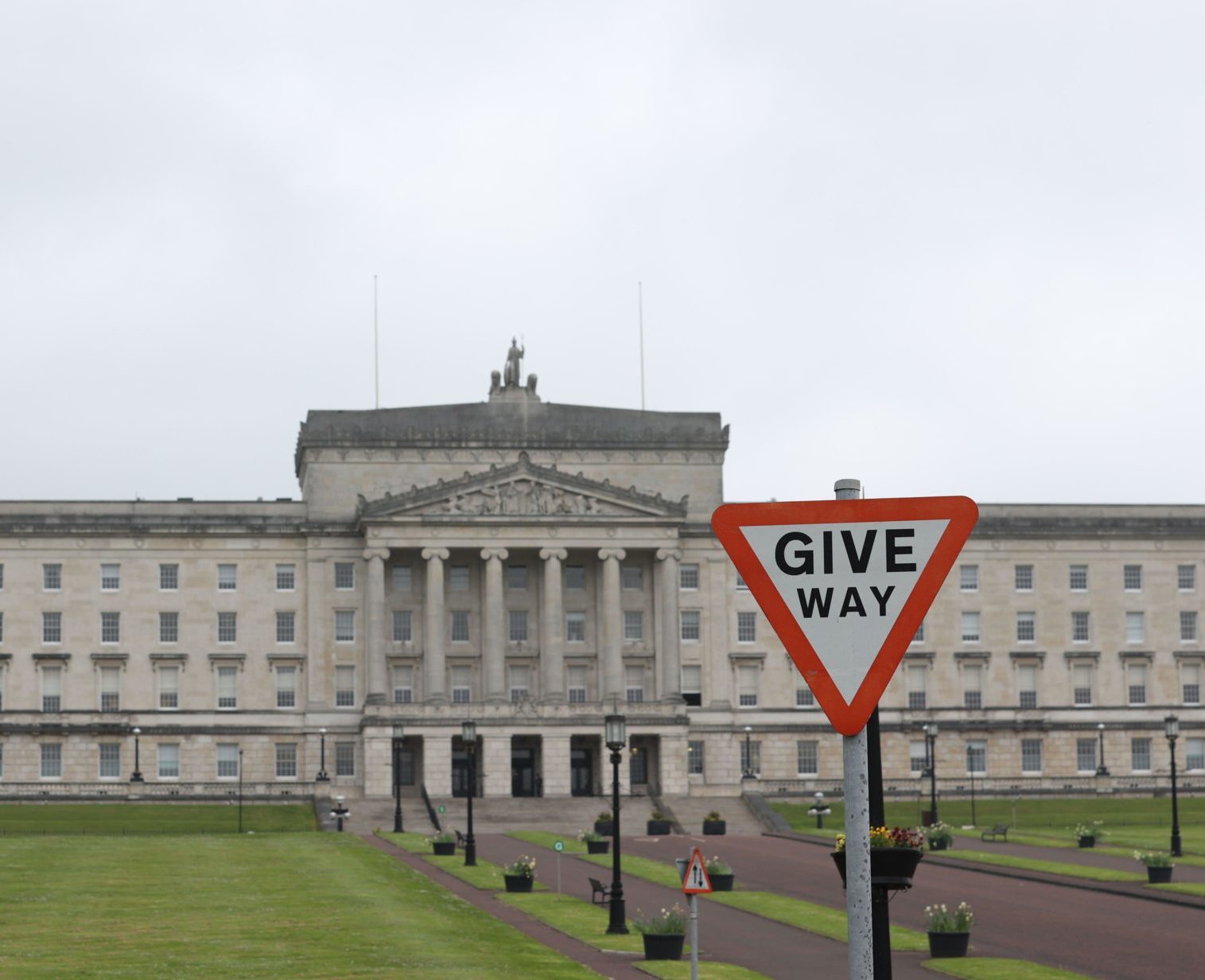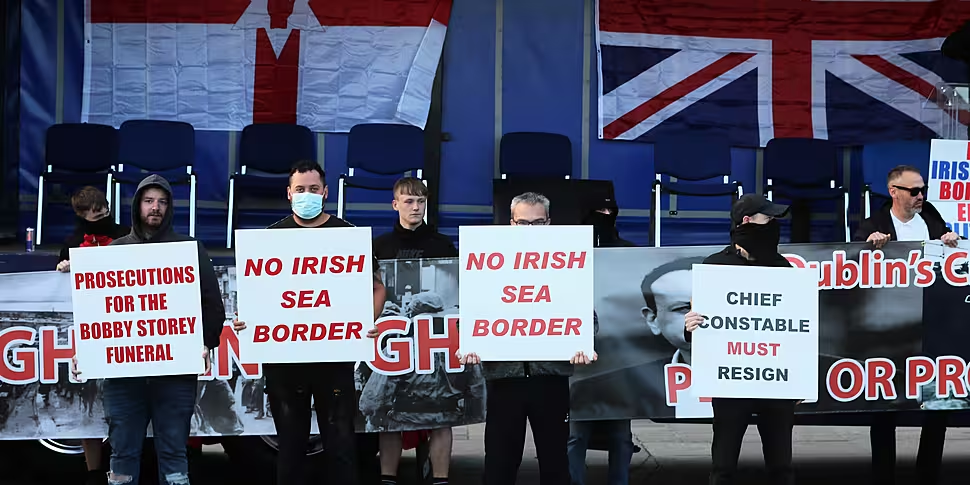One of the most prominent advocates of Britain remaining in the EU has said that the protocol is “damaging” Northern Ireland’s economic links to the rest of the United Kingdom and that unionists are right to be angry about it.
Dominic Grieve served as Attorney General under David Cameron but subsequently left the Conservative party when Boris Johnson became leader. He stood for re-election in the 2019 General Election as an independent on a platform of remaining in the EU but lost his Beaconsfield seat.
Although as an MP he took a different side to the DUP on the Brexit issue, Mr Grieve says that he has a great deal of sympathy with unionists who are upset about its impact on their ability to trade with Great Britain:
“He [Boris Johnson] said it would have no impact and it clearly is having some impact,” Mr Grieve told Newstalk Breakfast.
“Although I’m sure that there are some businesses that would welcome remaining in a single market with the rest of the EU as well - one has to balance that out.
“But I have no doubt that as someone who believes that Northern Ireland should have strong economic links with Great Britain the protocol has been damaging to that and I don’t think one should underestimate the degree of anger that that has generated.”
Listen and subscribe to Newstalk Breakfast on Apple Podcasts or Spotify.
The British Government is currently bringing forward legislation that would override aspects of the protocol if no deal is reached with the EU - something Mr Grieve opposes.
Instead he argued that London and Brussels should agree on something called phytosanitary alignment - which would mean there are common standards on animal and plant health in both legal jurisdictions.
Such an agreement would see the amount of paperwork reduced by 90% and Mr Grieve said it would benefit business right across Europe:
“It is ridiculous that you should have to fill out hundreds of pages of documentation in order to send food from Britain into the EU or for that matter from Britain into Northern Ireland,” he added.
 Loyalists take part in an anti-Northern Ireland Protocol rally in Portadown, Co Armagh. Picture date: Saturday June 5, 2021.
Loyalists take part in an anti-Northern Ireland Protocol rally in Portadown, Co Armagh. Picture date: Saturday June 5, 2021.Article 16
At the moment it is not clear whether the British Government intends to invoke Article 16 of the protocol or legislate unilaterally.
The EU and Britain agree in 2019 that either side could invoke Article 16 if the protocol causes "diversion of trade" or "societal difficulties".
Brussels used it in 2021 to ban the export of vaccines to Northern Ireland - before u-turning and apologising.
While London has since concluded that the collapse of the Assembly has jeopardised the Good Friday Agreement and the Foreign Office insists that Britain’s "overriding priority is to protect peace and stability in Northern Ireland".
 A 'Give Way sign' at the Stormont parliament buildings in Belfast, Northern Ireland on May 9th 2022. Picture by: PA Images / Alamy Stock Photo
A 'Give Way sign' at the Stormont parliament buildings in Belfast, Northern Ireland on May 9th 2022. Picture by: PA Images / Alamy Stock Photo“This is a British Government that has broken its agreements,” he told Newstalk.
“[It] is openly talking about violating international law and there’s a big concern in European capitals - including Dublin - that any concession that we might make could be banked and we’ll get nothing in return.
“Any agreement that we make could be breached. So I think the British Government needs to do a lot of work to restore trust.”
Protocol or power sharing?
Last week Sir Jeffrey Donaldson told the House of Commons that the DUP would refuse to nominate ministers to the Northern Ireland Executive until such a time as the protocol is reformed.
“I am prepared to commit the remainder of my political career to going back to those institutions and working with my colleagues,” he told the House of Commons.
“I am prepared to leave this house I have been a member of for 25 years. I want to work for our people
“I will not leave this house until this protocol issue is resolved. I will not leave this house until I can be sure our political institutions in Northern Ireland have a stable foundation.”
Main image: People take part in a Loyalist protest in Newtownards, County Down, against the Northern Ireland Protocol. Picture date: Friday June 18, 2021.Brian Lawless/PA Wire/PA Images









